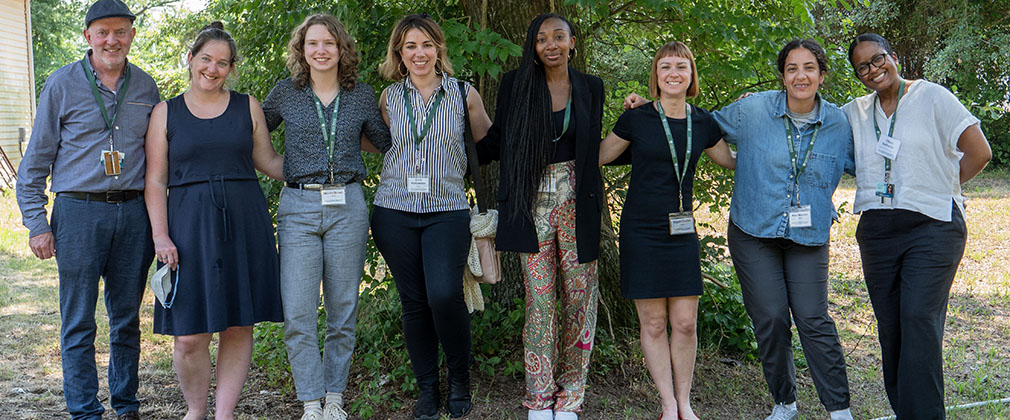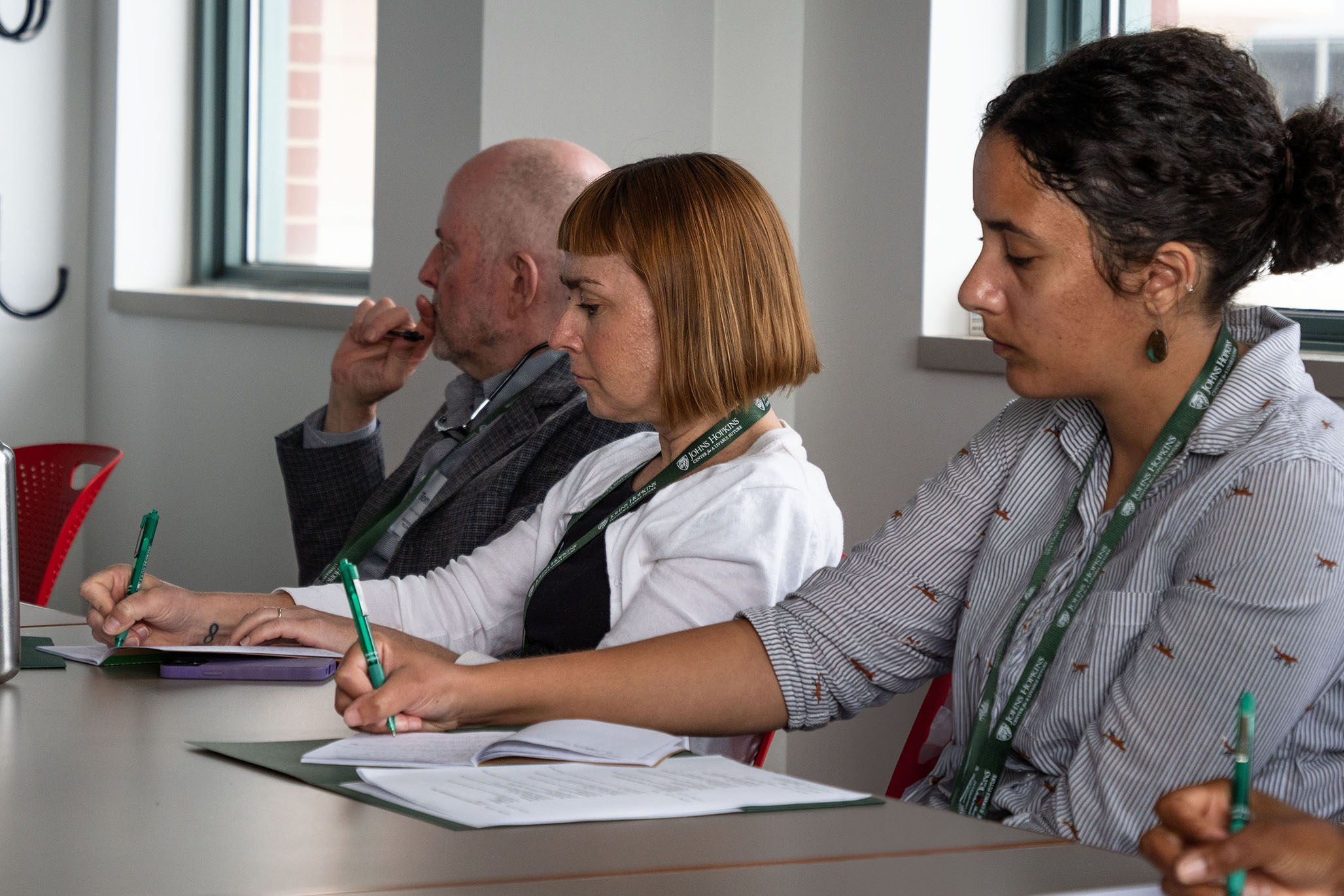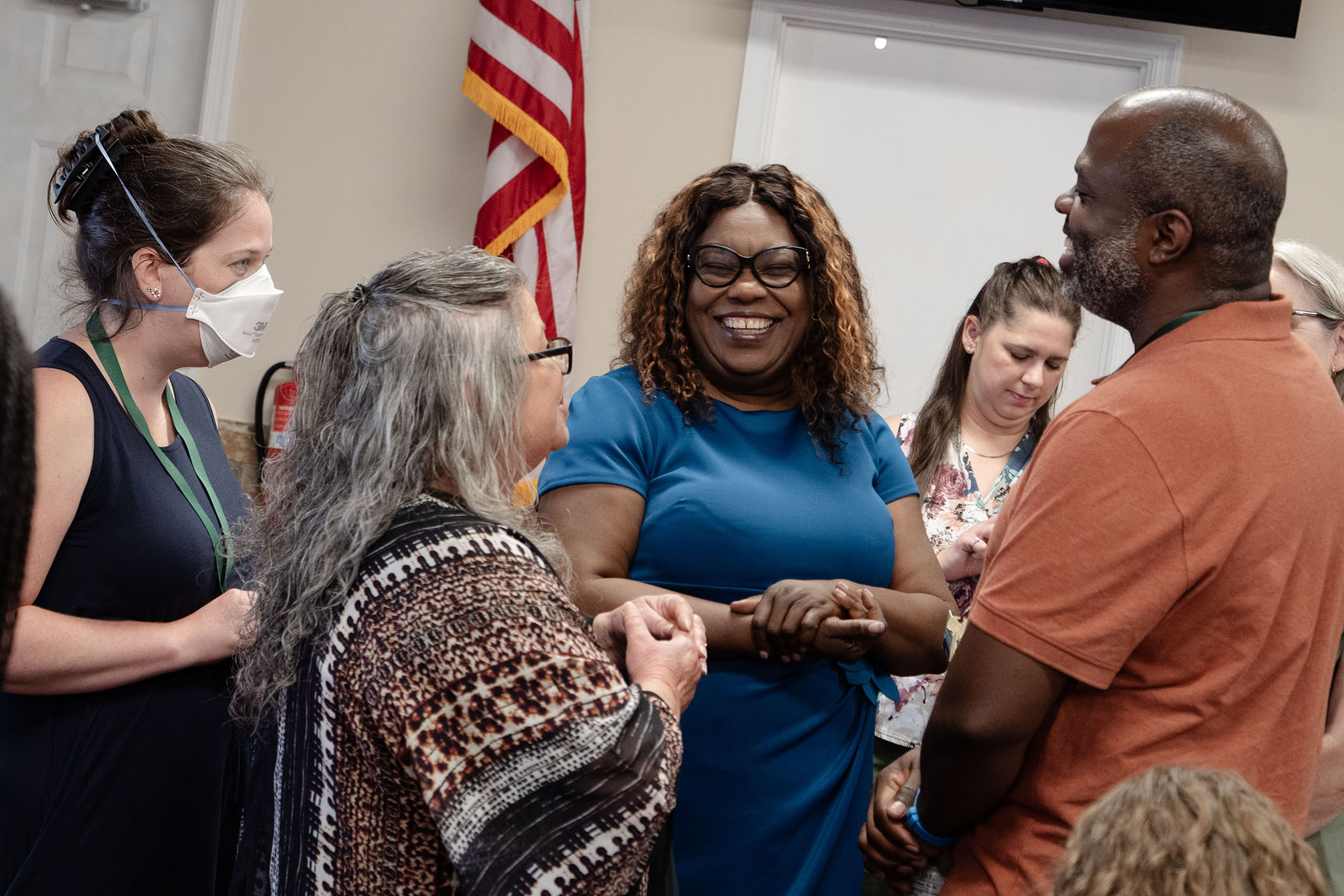Journalism Fellows Kick Off Program with Visit to Eastern Shore
A group of seven journalists filed into Ebenezer Haitian Seventh-Day Adventist Church in Seaford, Delaware, where they would hear first-hand stories from workers in slaughter and processing facilities. Greeting the journalists was Emanie Dorival, a nurse practitioner who immigrated from Haiti, and whose Seaford practice treats many Haitian immigrants employed by poultry slaughterhouses. The trip to Seaford was Day Two of a three-day in-person event that kicked off the new Food Systems and Public Health Fellowship for Journalists.
In addition to nurse practitioner Dorival, the meetup in Seaford featured injured workers whom Dorival has seen as patients; Maria and Michael Payan, a mother and son team of community organizers who live in Delaware and work within the Sussex Health and Environmental Network; and local journalist Maddy Lauria.
The training in food systems and public health issues was one component of a yearlong journalism fellowship program offered by the Johns Hopkins Center for a Livable Future. The Center launched the fellowship program to help early-to-mid career journalists navigate the complexity of issues at the intersection of public health and food systems, with a special focus on issues associated with food animal production.
For the 2024 cohort, the multi-day immersion experience portion of the program included presentations by and meetings with Johns Hopkins University faculty experts, public health researchers, food policy analysts, community health advocates, and journalists with extensive experience on the food systems beat. (The roster of presenters, which includes researchers and editors, can be found here.)
This year’s cohort of seven consists of journalists from California, Maryland, New York, and Washington, DC, and they will continue their engagement with CLF in an interactive and supportive relationship that includes ongoing mentoring, networking, and virtual webinars.
“Food systems can be very intimidating, and it’s hard to enter with a quick story here or there,” said one of the fellows after the initial training. “I feel infinitely more prepared to dive in now.”
Another journalism fellow said, “It was great to be exposed to new experts in this field and I certainly think that I will lean on some of the folks I met this week for future stories, especially stories that are more science focused.”
A core objective of the new fellowship program is to engage journalists and cultivate interest in under-communicated stories involving the public health implications of our food systems. As yet another fellow said, “I am excited to continue building these relationships and put stories out into the world!”
More information about the program is available here, and the Request for Applications for the 2025 cohort will be available in early 2025. Enjoy a slideshow of the in-person event from June 2024, below.


